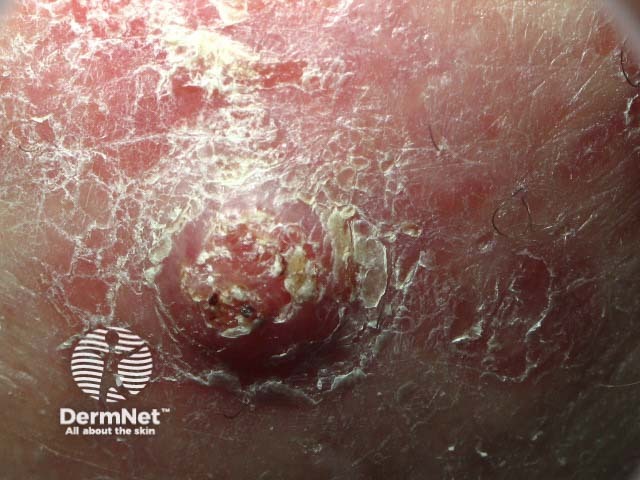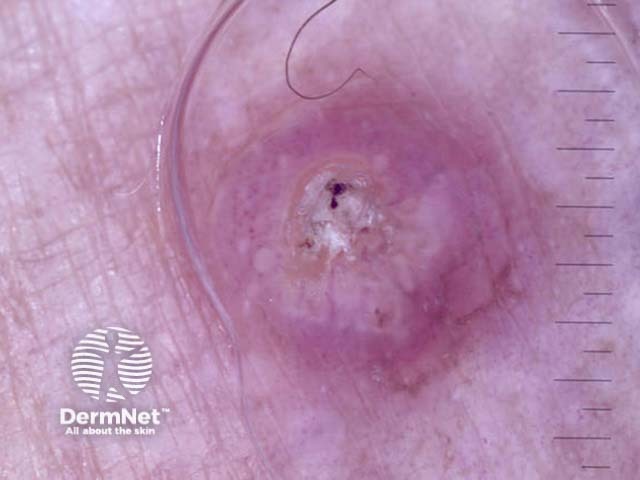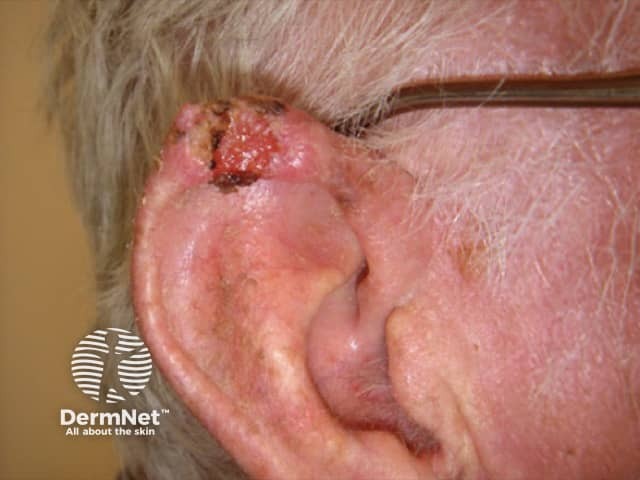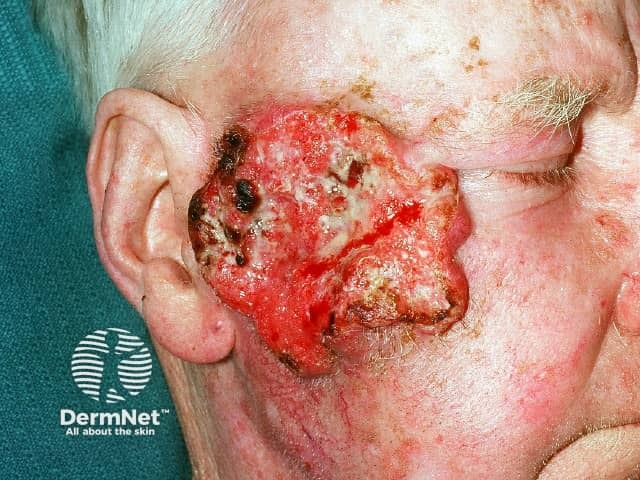Main menu
Common skin conditions

NEWS
Join DermNet PRO
Read more
Quick links
Last Reviewed: May, 2024
Adapted by Dr Libby Whittaker, DermNet Medical Writer (2024) from original content written by Associate Professor Amanda Oakley (2015).
Reviewing dermatologist: Dr Ian Coulson (2024)
Edited by the DermNet content department
Squamous cell carcinoma (SCC) is the second most common type of skin cancer. Being diagnosed with skin cancer can be stressful, and many people have questions around how dangerous it is and the chances of recovery.

A small SCC

An SCC on the sun-exposed site on a finger

An ulcerated SCC on the ear
Fortunately, it is not common for an SCC to become deadly. Many SCCs are cured by removing them, although they sometimes grow back. Removing the SCC when it is still small gives the best chance of full cure. For this reason, if you notice changes in your skin, it is a good idea not to wait too long before going to the doctor to get a skin check.
The most serious forms of SCC include advanced SCC and metastatic SCC.
Advanced SCCs are typically larger skin cancers that may have been there for a long time. They have often grown down deeply through the layers underneath the skin and may grow into surrounding structures such as cartilage or bones, making them difficult or impossible to cut out.

An advanced SCC on the cheek that has already spread to the local lymph nodes

An advanced lip SCC
Advanced SCC may still be treatable, but treatment is more complicated and a team of specialist doctors are usually involved. For example, treatment options to try and stop it growing might involve a combination of surgery to remove part or all of the cancer, radiation therapy (where the area of cancer cells is targeted using x-rays), and/or medications such as cemiplimab, given directly into a vein (intravenous).
Metastasis occurs when the cancer cells spread further, to a different part of the body than the original SCC. This is uncommon but can sometimes be deadly.
If metastatic SCC does develop, it most commonly spreads to one or more lymph node (gland) first. SCC cancer cells can also travel to other body parts far away from the original skin spot, such as the bones or the lungs. These cancer cells can continue to grow after they spread, leading to cancerous growths in multiple spots around the body (metastases).
Symptoms of metastatic cancer can include unexpected weight loss, tiredness (fatigue), weakness, and pain. Note that these symptoms can also be caused by other conditions that are not related to cancer. If you are noticing symptoms like these, you should see your doctor to try and work out what might be going on.
Metastatic SCC occurs in about 3–9% of cases.
For more information, see our full page on squamous cell carcinoma.